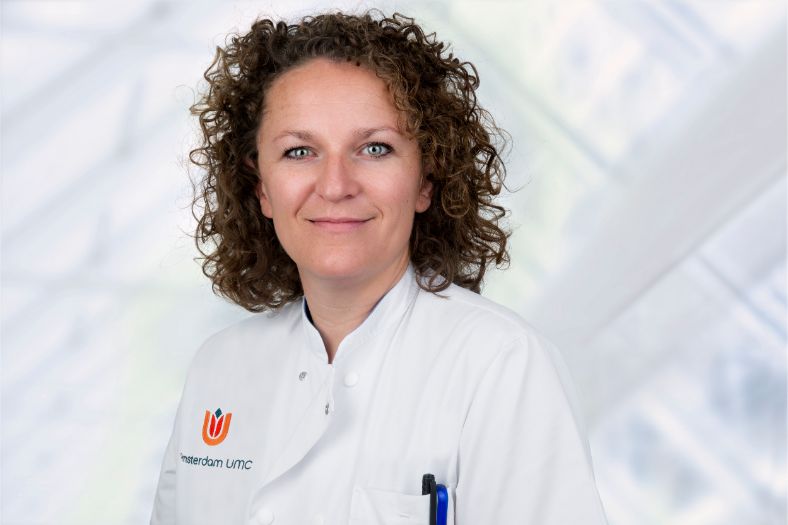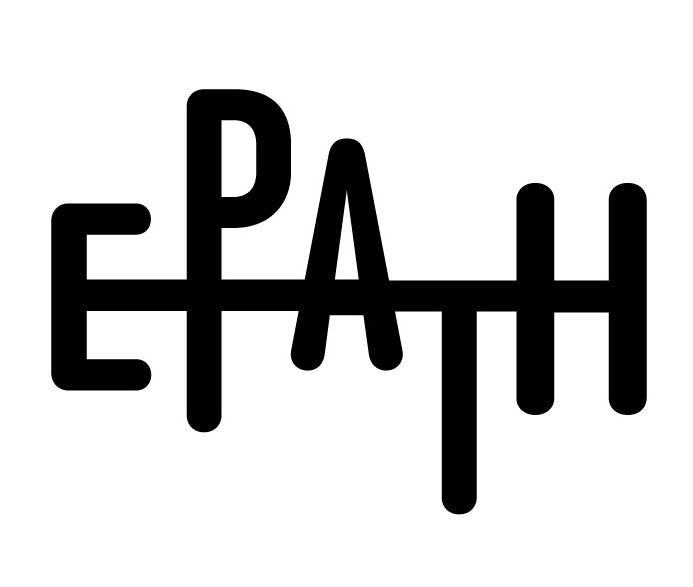The Year in Review
The Year in Review offers a synoptic review of notable new literature in various sub-specialties of transgender care. The plenary session will consist of live presentations on site which will be recorded and live streamed through the digital platform (ExOrdo). Confirmed speakers are:
Prof. dr. Christina Richards

Mental health (adults)
The mental health of gender diverse people remains poor compared to that of cisgender people. Studies differ in terms of the mental health of different groups of gender diverse people, especially non-binary people, trans women, and trans men. Further, the role of intersectionality inflects mental health outcomes, although further work is needed to clearly detail this. Physical management of gender dysphoria through the use of hormones and/or surgeries for appropriate people is of great assistance in alleviating mental distress. As always, discrimination and minority stress adversely affect mental health outcomes and point to the need for further society-level work to address prejudice, both explicit and implicit, against gender diverse people.
Bio
Professor Christina Richards BSc (Hons), MSc, DCPsych, CPsychol, EuroPsy, FBPsS is an HCPC Registered Doctor of Applied Psychology and a full Fellow of the British Psychological Society (BPS) where she is the Past Chair of the Division of Counselling Psychology (DCoP); Lead National Assessor for Counselling Psychology; Chair of the revision Committee of the BPS Assessment, Diagnosis and Formulation guidelines. She was the Editor-in-Chief of the journal of the British Psychological Society’s Division of Counselling Psychology; Practice Lead of the Division; Prescribing Committee member; and Chair of the revision committee of the BPS Guidelines for working therapeutically with sexual, gender, and relationship diverse clients of which she was an original co-author; as well as several other roles.
Professor Richards is Visiting Professor of Gender and Mental Health at Regent’s University London School of Psychotherapy and Psychology; Visiting Senior Research Fellow at the University of Huddersfield; and is the Clinical Module Lead for the Royal College of Physicians’ intercollegiate qualification in Gender Identity Healthcare.
Prof. Richards is Lead Consultant Psychologist/Head of Psychology at the London Gender Identity Clinic (Charing Cross) within the Tavistock and Portman NHS Foundation Trust. This role involves strategic planning and management on a national and international level; supervising senior staff; assessing people with highly complex needs for hormones and surgeries, and supervision of individual and group therapies from a number of different modalities.
Prof. Richards is also Head of Research at the NHS London Gender Identity Clinic (Charing Cross) within the Tavistock and Portman NHS Foundation Trust. This role involves responsibility for the strategy and implementation of the research programme at the clinic. Professor Richards also lectures and publishes internationally on gender, sexualities, and critical mental health – both within clinical academia and also to third sector and statutory bodies
Prof. Richards was elected to the Executive Board of the European Professional Association for Transgender Health (EPATH); and as Board-Member-at-Large of the World Professional Association for Transgender Health (WPATH). Prior to becoming a board member herself, she was selected by the executive board of the WPATH to be Lead Chapter Author for Adult Assessment in the Standards of Care Version 8 (SoC v8) revision. She is listed as an expert in gender diversity by the BPS on the Gender Diversity Specialist Register (whose criteria she co-drafted). She is one of the few psychologists recognised by HM Courts and Tribunals Service as a Specialist in the field of Gender Dysphoria, thus allowing her to prepare medical reports for the Gender Recognition Panel.
Prof. Richards is a founder member of the British Association of Gender Identity Specialists (BAGIS); a past Trustee of the National LGBT Foundation; and a founder member of BiUK.
Prof. Richards’ own publications consist of various papers, reports, and book chapters. She is first author of a clinical guidebook on sexuality and gender published by Sage – Richards, C., & Barker. M. (2013). Sexuality and gender for mental health professionals: A practical guide. London: Sage; First editor of the Palgrave Handbook of the Psychology of Sexuality and Gender; First editor of a multidisciplinary book about people who identify outside of the gender binary of male or female – Richards, C., Bouman, W. P., & Barker, M. J. (2018). Genderqueer and non-binary genders. Basingstoke: Palgrave-Macmillan; Sole author of the monograph: Richards, C. (2017). [Monograph]. Trans and sexuality – An existentially-informed ethical enquiry with implications for counselling psychology. London: Routledge; And has co-authored a book on clinical work with trans and non-binary people for the Royal College of Psychiatrists – Richards, C., & Barrett, J. (2020). Trans and non-binary gender healthcare for psychiatrists, psychologists, and other mental health professionals. Cambridge: Royal College of Psychiatrists/Cambridge University Press.
Pronouns: She, Her, Hers (Pretty much…).
Dr. Riittakerttu Kaltiala

Mental health (children & adolescents)
Background: The number of minors contacting specialized gender identity services has been on the increase throughout 2010’s, and research on child and adolescent gender dysphoria / transgender identity is also expanding. Mental health is an important aspect of this research.
Methods: This review focuses on mental health aspects of child and adolescent gender dysphoria and transgender identity in research published since spring 2019. A systematic search was carried out in Medline and Psychinfo databases. References used in selected publications and Google Scholar database were further searched to enrich material on emerging or controversial topics.
Results and Conclusions: It was known that minors presenting in gender identity services commonly display co-occurring mental disorders, particularly internalizing disorders. A few more studies presenting baseline characteristics with fairly similar findings have emerged. Follow-up studies that would have potential to demonstrate the impact of gender affirming treatments on mental health are only a few, have small numbers of participants, short follow-up times and other methodological limitations, and a limited array of mental health outcomes, and their outcomes as to mental health are mixed. Studies exploring mental health issues among transgender identifying adolescents in the population are cross-sectional and often based on selected populations, and thus they have limited potential for shedding light on any causal relationships. However they suggest firstly, that transgender identifying adolescents present with mental health problems more commonly than their cisgender peers, and secondly, that problems in relationships with parents, lack of parental support and peer problems such as bullying are important correlates of mental health problems in transgender identifying adolescents, as among children and adolescents at large. Transgender identifying adolescents in community samples appear to report both internalizing and externalizing problems more commonly than cisgender youth. A large bulk of literature comprises reviews and recommendations for various health care professionals, without presenting new research findings. Methodological limitations in the whole research field are considerable and should be kept in mind when making any causal assumptions.
Bio
Riittakerttu Kaltiala, MD, PhD, BSc, is professor of adolescent psychiatry in Tampere University and chief psychiatrist in the Department of Adolescent Psychiatry in Tampere University Hospital. She is specialist in psychiatry, adolescent psychiatry and forensic psychiatry. She is clinically involved and carrying out research on adolescent gender identity issues since 2011 when one of the two gender identity services for minors was opened in Tampere university Hospital in Finland. Another main branch of her clinical and research activities is adolescent forensic psychiatry, and as chief psychiatrist she is also responsible for a range of adolescent psychiatric clinical activities, service development and health policy work. She has published numerous scientific articles on adolescent mental health epidemiology, psychiatric health services research and clinical adolescent psychiatry. Regarding gender identity issues, she has since 2011 been actively involved in service development, continuous education and scientific writing and collaboration nationally and internationally, and in her home country she has been invited a member of major national initiatives related to transgender treatment guidelines and legislation. For more information, see www.riittakerttu.fi.
Dr. Justine Defreyne

Endocrinology
Background: As the number of people applying for gender affirming care keeps increasing at all European gender clinics, it is obvious that the demand for gender affirming care also continues to grow. Unfortunately, gender affirming endocrine care is still relatively scarce, as not all endocrinologists get involved. This may be due to limited data on gender affirming endocrine care.
Aim(s): To identify important recent publications on endocrine aspects of transgender health.
Methods: A thorough PubMed, Embase and Google Scholar literature search was conducted. Articles on gender affirming endocrine care, published between January 1 2018 and April 1 2021 were analysed.
Main Outcome Measures: Publications included in the presentation were selected based on their novelty, importance and potential impact on gender affirming endocrine care.
Results: This review will highlight the main findings from key endocrine publications since the last EPATH conference.
Bio
Justine Defreyne (she/her) was born in 1991, in Waregem, Belgium. She studied Medical Sciences at the Ghent University (magna cum laude). In the summer of 2016, she started working as a PhD student at the Endocrinology Department of the Ghent University Hospital, under the supervision of prof. dr. Guy T’Sjoen and prof. dr. Els Elaut. She performed research on gender affirming endocrine care and obtained her PhD diploma in the summer of 2020. She married Laurens Van de Bruaene (he/him) in 2018, they have two children, Maurice and August.
She is a member of the European Professional Association for Transgender Health, the World Professional Association for Transgender Health, the Belgian Endocrine Society, the European Endocrine Society, the Endocrine Society and the European Society for Sexual Medicine. She is currently a resident in training in the field of internal medicine.
Justine Defreyne is currently (co-)author of several international publications. She was selected for an ‘Outstanding Abstract Award’ at ENDO 2020 in San Francisco in March 2020 (cancelled due to COVID-19 outbreak) and received the ‘Best Abstract Presentation’ award of the World Meeting on Sexual Medicine in March 2018.
Dr. Zowie Davy

Social & political scienses
Introduction: The overview of the research since the last EPATH Conference in Rome will be systematic narrative review. Using Scopus, I identified six substantive themes in the research being produced and I include another which are key studies informing health and wellbeing in trans populations.
Methods: Scopus data base was used to identify articles from Social and Political science disciplines and its contribution to trans health and wellbeing. Inclusion criteria was articles from Sept 2019-May 2021, European, written in English, peer reviewed, and understood by the speaker to be research contributing to the understanding of the social and political aspects of health and wellbeing for trans, non-binary and intersex people. 137 papers were found, with the keywords trans, transgender, non-binary, intersex. Each abstract was assessed by the speaker to be relevant to the social and political sciences. All commentaries, opinion pieces and letters to editors were removed from the review.
Results: 74 papers were identified following reading of articles. This culminated in 6 themes: Anti-trans movements, Young trans and non-binary people and schooling, Fertility, fertility preservation technologies and experiences of pregnancy and parenthood, Sex and sexuality, Ageing and trans and non-binary populations and Sport and exercising. A final theme is included: Key studies informing health and wellbeing. This review highlights that trans, non-binary and intersex people continue to experience barriers to equitable health and wellbeing services.
Bio
Zowie Davy PhD is Associate Professor at the Centre for LGBTQ Research, De Montfort University, UK. Zowie’s work centers on medicolegal constructions of gender and sexuality in healthcare. Her current research spans (trans) gender studies including critical approaches to gender dysphoria, a project on parents’ experiences of school cultures while supporting their trans children, and recent ongoing survey study looking at the perceptions of parents and youth and accessing primary healthcare in the UK. Zowie has published many books and articles about transgender embodiment, transgender politics and healthcare and her book Recognizing Transsexuals won the British Sociological Association’s Philip Abrams’ Memorial Prize in 2012. Another monograph entitled Sex/Gender and Self-determination: Policy Developments in Law, Health and Pedagogical Contexts has a release date of June 2021. She was also the lead editor for the 2020 (43-chapter, two volume) Sage Handbook of Global Sexualities. Zowie was on the board of directors of International Association for the Study of Sexuality Culture and Society and is a scientific advisor for the European Professional Association for Transgender Health.
Dr. Norah van Mello

Reproductive health
Background: The majority of transgender and gender diverse persons seeking medical care are of reproductive age. Gender affirming hormonal treatment and surgery adversely affect the future reproductive potential. According to international guidelines, fertility preservation should be discussed before any gender treatment. However the reproductive options and needs of transgender and gender diverse persons may ask for a specific approach. Evidence on gender specific reproductive health, fertility preservation options and outcome is scarce and a bit diffused. All the more important to provide an overview of the most relevant insights in this field.
Methods: PubMed, Embase and Google Scholar were searched to screen the literature. Mostly recent papers from 2019 onward on fertility, childwish and fertility preservation in gender population were included.
Results and Conclusions: This presentation will aim to cover the main findings from key publications on reproductive health in transgender people which have been published over the last years.
Bio
Norah van Mello is imbedded in the Center of Expertise on Gender Dysphoria, Amsterdam UMC, as gynaecologist since 2016. She performs gynaecological gender surgery, endocrinology, fertility and pregnancy care. She offers dedicated fertility counselling for transmen and transwomen within the gender team together with a dedicated nurse and three PhD students.
Prof. dr. Evelien D’haeseleer

Voice and communication
Background: Transgender or gender diverse individuals may experience incongruence between their gender identity and the qualities of their voice and communication. Voice services for gender diverse people experiencing voice and communication difficulties is a growing specialty within speech-language pathology and laryngology. In the past, there was a considerable imbalance of voice research focusing on people assigned male at birth. However, a gradually increasing number of studies have been published regarding voice and communication in a gender diverse population. The purpose of this presentation is to provide an overview of the current literature regarding voice and communication in a gender diverse population from the previous EPATH conference until 2021.
Methods: Three electronic databases were searched for literature between 2019 and July 1st, 2021: MEDLINE (PubMed), Embase and Web of Science. Two concepts (gender diverse and communication) were combined. After removing duplicates in Endnote, title and abstract screening was performed. Further data-extraction of the full-texts was completed and summarized in 8 themes: “theoretical framework”, “voice function”, “questionnaires and tools”, “laryngeal surgery”, “voice training”, “voice changes under gender affirming hormonal treatment”, “gender perception”, and “training, attitudes, knowledge of speech language pathologists”. The presentation focuses on the first 5 themes.
Results and Conclusions: In total, 2018 records were identified through the database search. After duplicate removal, title, abstract and full-text screening, 83 records were retained.
A new transdisciplinary theoretical model for vocology is proposed by Azul & Hancock, changing perspectives in the field. This model draws attention to the interactive process through which voice is constructed during communication, between material forces, speaker, listener, environment, interventions and socio-cultural context.
Recent research on voice function focuses on a more diverse population and shows that the prevalence of voice-gender incongruence is high in transgender, nonbinary and gender-nonconforming people. However, gender diverse clients, especially transmasculine people, experience a variety of barriers to access voice services. There is a need for questionnaires and tools investigating voice function, needs and experiences in a broader gender diverse population. The VENI (Voice-related Experiences of Nonbinary Individuals), developed in 2021, is the first assessment tool that measures self-perception of voice in nonbinary individuals. The Trans Women Voice Questionnaire (TWVQ) was renamed in July 2020 and has been translated and adapted in several languages.
For laryngeal surgery, new evidence for pitch lowering surgical techniques (thyroplasty type III and vocal fold injection augmentation) is found. For pitch raising surgery most recent studies focused on the outcome of glottoplasty. Computational models show that the optimal length of fixation is a compromise between pitch elevation and reduction in output acoustic power.
Evidence for voice training in transgender people is growing. Recent studies show a positive outcome for the use of biofeedback in speech feminization training. For speech masculinization training, group therapy and manual laryngeal therapy in a small group of transmasculine people was effective. In further research, there is a need for effectiveness studies using Randomized Control Trial designs with larger sample sizes and long-term follow-up to assess which techniques are most effective and to determine outcome predictors.
Bio
Evelien D’haeseleer, (she/her), is speech language pathologist and professor at the Center for Speech and Language Sciences at Ghent University. She is also guest professor at the Musical Department of the Brussels Royal Conservatory. She works as a voice clinician at the multidisciplinary gender team and ENT Department of Ghent University Hospital and is a member of the IALP and EPATH scientific voice committees. Her main areas of interest within voice research are transgender voice, effectiveness of voice training and voice in elite vocal performers.
Prof. dr. Susanne Krege

Surgery
Gender surgery summarizes a variety of remodeling operations as feminizing or masculinizing genital reassignment, chest modification and facial surgery, which are the most common procedures, or modifications of the hands, up to now a less often used procedure. Concerning those different topics several methods have been described without having established standards up to now. This is an ambitious aim of a German guideline just in progress. Besides presenting the diversity of the surgical methods the guideline will point out indications or more important contraindications for surgery, inform about pre- and postoperative requirements and deal with trouble shooting.
The lecture given will present some new trends and aspects concerning genital reassignment in the one and other direction including new literature and personal experience. The question about risk of prostate cancer in transgender women comes up. Full facial feminization, what is better, an all in one procedure or a 2-stage procedure? The current literature about modification of the hands will be presented.
Perfect surgery without severe complications is what the surgeon aims at. But does this also reflect the patient’s point of view. Measurement of quality of life outcomes is of special interest. Another important aspect for patients‘ wellbeing are their psychosocial resources. Recently a new score concerning this topic has been developed and validated in Germany.
Bio
No bio yet.
Prof. dr. Simona Giordano

Law, politics, and ethics
Background: Review of studies on the ethical issues around the clinical management of gender diverse and transgender children and adolescents.
Methods: key word search using Ingenta Connect, Pro/Quest Central UK/Ireland, PubMed Central, Springer Online Journals, Wiley Online Library Full Collection 2019 and Wiley Online Library All Journals, Springer Links Journals. Key words: ethics, puberty suppression; ethics transgender children
Results and Conclusions: The number of publications on the care of gender diverse young people has increased significantly in the last two years. Most of the papers do not provide an ethical analysis; they are clinical papers which present an ethical dilemma; this seems to indicate a need, on the part of the authors, at times explicitly acknowledged, to engage more directly with ethicists in the exploration of the ethical issues emerging in the care and treatment of gender diverse young people. Five thematic areas of concern emerge from the review of the literature:
- Ethical issues in the provision of long-term GnRHa to non-binary adolescents;
- Ethical issues in the provision of genital surgery to minors;
- Ethical issues around consent and the role of the court (Bell v Tavistock; AB v CD);
- Ethical issues around family involvement;
- Ethics of puberty delay.
The recent legal ruling in England (December 2020 and March 2021) appear shaped by a number of long standing ethical concerns around the nature of gender treatment, the ability of adolescents to be competent decision-makers, and the long term potential risks of early medical intervention.
Bio
Simona Giordano is Professor of Bioethics at the Centre for Social Ethics and Policy (CSEP) at the University of Manchester Law School. She has been involved in research concerning the ethico-legal issues regarding the care and treatment of gender diverse children and adolescents since the early 2000s, and is the author of numerous publications on the subject, including Gender Identity Disorder: a clinical, ethical and legal analysis, Routledge 2013, and Gender diverse youth: ethical issues in clinical care from early childhood to adulthood, Oxford University Press, forthcoming.
